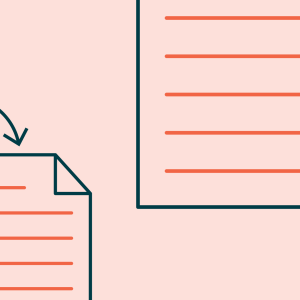We hope you’re not personally familiar with contract cheating, but chances are, you’ve had an encounter with this form of academic misconduct. It’s an issue that is not often talked about and as we all know, if such issues are not addressed, they can grow into a systemic crisis.
So, what is “contract cheating?”
Contract cheating is the practice of students engaging a third-party to complete assignments. It occurs when someone other than the student completes an assignment--and which the student then submits for assessment/credit.
This exchange can happen when a student swaps papers with another. This could be a student asking a friend or family member for a favor, with no money changing hands. Sometimes, students download a paper from a “free” essay site--and that, too, constitutes contract cheating.
Or in the most nefarious of scenarios: this exchange can happen when a student contacts an essay mill to write an essay in exchange for money.
Oh, no-- that sounds HORRIBLE, but this isn’t a problem where I am!
Odds are that it is.
In Australia, 16 universities were scandalized by up to 1,000 students utilizing MyMaster to ghostwrite essays . The Australian government is now tackling contract cheating with a Prohibit Academic Cheating Services Bill-- with punishment up to 2 years in prison . And contract cheating in New Zealand is simply illegal .
The UK’s Daily Telegraph reported more than 20,000 university students were buying essays in 2017 alone . This prompted the House of Lords to call for a ban on contract cheating.
In the United States and North America, admissions integrity issues weren’t well-known until the
Varsity Blues Scandal
. It’s a logical leap to make a connection between students cheating to gain admissions who then hire others to complete assignments on their behalf. On September 17, 2019,
The New York Times highlighted the rise of contract cheating in North America
.
Contract cheating is real and it’s threatening academic integrity. Contract cheating is happening and it is disrupting student learning on a daily basis.
Okay, contract cheating is real and happening where I live. So why should I care about it?
Do you want to wait for a contract cheating scandal that will wound your institution’s academic reputation ?
If students think educators don’t care about contract cheating, then students receive the message that they shouldn’t care, either. When students think educators aren’t aware of contract cheating, they feel they can “get away with it.”
Contract cheating is a complete dismissal of the learning process.
Additionally, when students aren’t fully informed about what constitutes plagiarism, and the definition of contract cheating, they are more likely to fall prey to essay mills that attempt to normalize contract cheating . So it’s important to care. It’s important to understand what contract cheating is and to acknowledge its existence.
So what can I do? What is the International Day of Action Against Contract Cheating? What’s involved in participation?
Every year, The International Center for Academic Integrity (ICAI) spearheads an International Day of Action Against Contract Cheating . We urge all students, educators, and institutions to take a stand to promote awareness in a united front against academic misconduct.
Taking a stand means asking tough questions. Why aren’t essay mill sites flat out illegal throughout the world? Essay mill sites are also prevalent on social media--they engage our students as they struggle in the 11th hour on assignments. Why aren’t they banned on social media?
Taking a stand means raising awareness as a part of the process of combatting cheating. Raising awareness is critical in supporting student learning. Raising awareness will prevent a systemic crisis.
So we urge you to take a stand and sign up for the International Day of Action (IDoA) .
Let’s make a difference.





